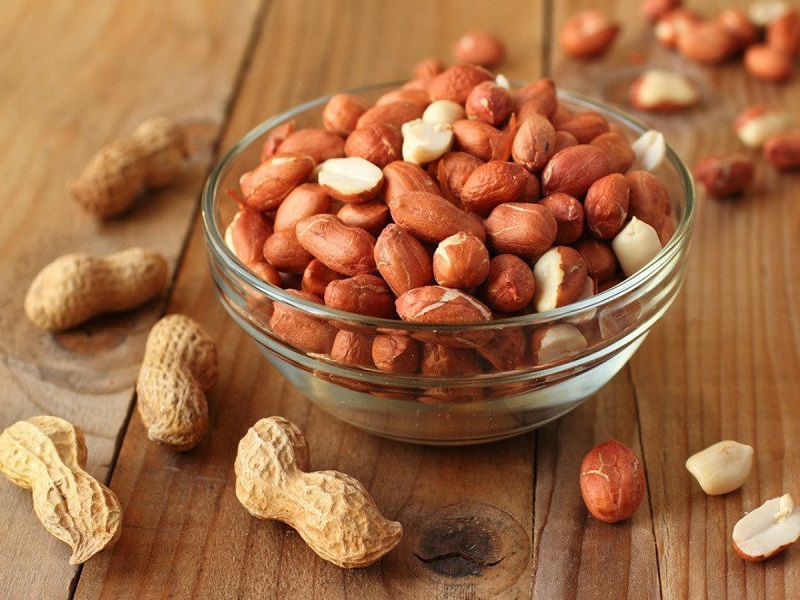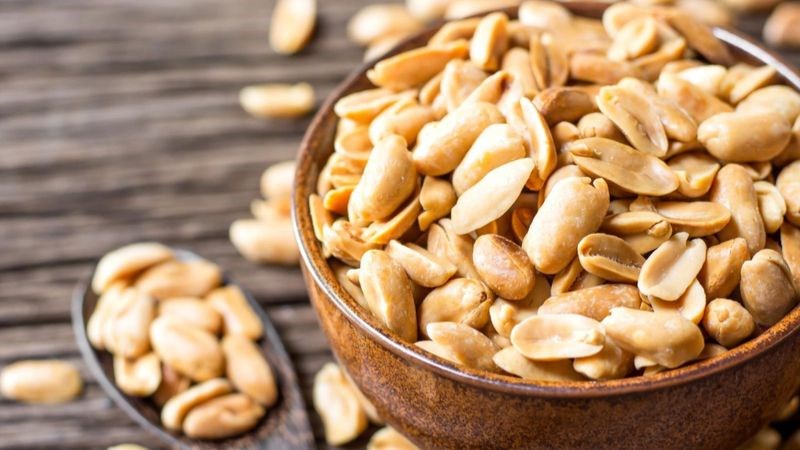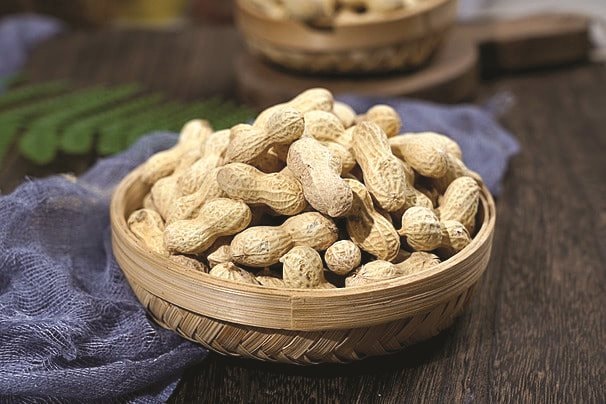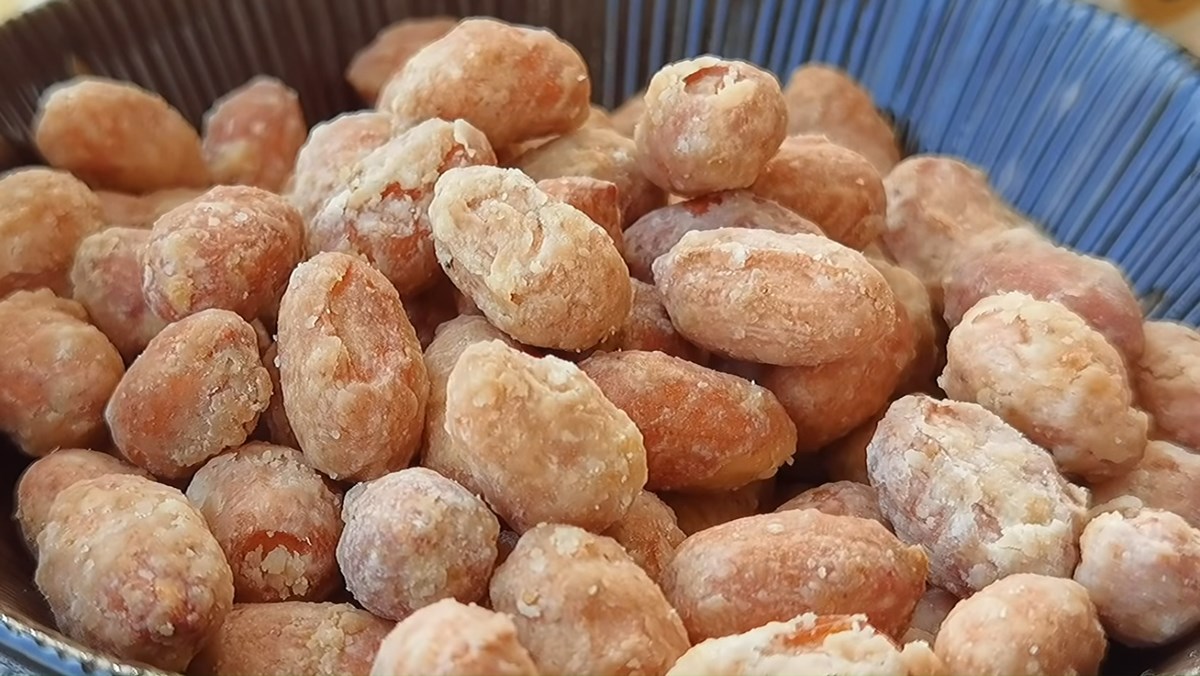Peanuts are known as easy-to-eat nuts with attractive flavor whether dried or fresh.Nutritional support for many internal organs including the heart and intestines.
According to experts from the Department of Nutrition of Beijing Friendship Hospital, raw peanuts are rich in fiber (5.5g/100g) and fat (44.3g/100g), mainly unsaturated fatty acids and is a high source of fat.

Peanuts are loved by many people because of their delicious taste and easy preparation.
Not only that, peanuts are also rich in minerals, including copper, manganese, potassium, calcium, iron, magnesium, zinc and selenium, all of which are necessary to maintain a healthy body.
Here are some uses of peanuts you may not know:
Improve cardiovascular health
Peanuts contain high amounts of monounsaturated and polyunsaturated fats, which help keep your heart healthy.
Good for diabetics
Peanuts are considered a great snack option for diabetics.

Eating peanuts can bring many benefits to the body.
Prevent bowel cancer
Many studies have shown that eating lots of peanuts and other nuts can reduce the risk of bowel cancer.
Good for the brain
Vitamin B3 and niacin in peanuts help improve brain activity and further enhance memory.
losing weight
Fiber and protein in peanuts can help people feel full longer and reduce cravings.
Reduce stress
Experts say an amino acid called tryptophan in peanuts helps release serotonin, a brain chemical involved in regulating mood.

Peanuts contain many nutrients that are beneficial for health.
Beautify skin and hair
Monounsaturated fats and vitamins C and E in peanuts help delay signs of aging.
Be careful when eating peanuts
—Although peanuts are rich in nutrients and delicious, their fat content is not low.

Users need to keep in mind a few things when consuming and processing peanuts.
– Do not eat too many roasted or boiled peanuts on an empty stomach, because the fat in peanuts can cause flatulence, bloating and discomfort.
– People with gout, obesity, and diabetes should eat peanuts in moderate amounts.
– People with poor liver and gallbladder should not eat too many peanuts.
(synthetic)
